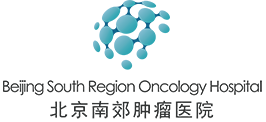On June 11, Kelun-Biotech announced that its independently developed TROP2 ADC drug sac-TMT (佳泰莱), in combination with the PD-L1 monoclonal antibody tagitanlimab (科泰莱”), has been granted Breakthrough Therapy Designation (BTD) by the Center for Drug Evaluation (CDE) of the National Medical Products Administration (NMPA) of China for the first-line treatment of locally advanced or metastatic non-squamous non-small cell lung cancer (NSCLC) patients without driver gene mutations.

Sac-TMT, a core product of the Company, is a novel human TROP2 ADC in which the Company has proprietary intellectual property rights, targeting advanced solid tumors such as NSCLC, breast cancer (BC), gastric cancer (GC), gynecological tumors, among others. Sac-TMT is developed with a novel linker to conjugate the payload, a belotecan-derivative topoisomerase I inhibitor with a drug-to-antibody-ratio (DAR) of 7.4. Sac-TMT specifically recognizes TROP2 on the surface of tumor cells by recombinant anti-TROP2 humanized monoclonal antibodies, which is then endocytosed by tumor cells and releases KL610023 intracellularly. KL610023, as a topoisomerase I inhibitor, induces DNA damage to tumor cells, which in turn leads to cell-cycle arrest and apoptosis. In addition, it also releases KL610023 in the tumor microenvironment. Given that KL610023 is membrane permeable, it can enable a bystander effect, or in other words kill adjacent tumor cells.
This Breakthrough Therapy Designation is based on the efficacy and safety data from the non-squamous cohort of the Phase II OptiTROP-Lung01 study.
The results of the OptiTROP-Lung01 Phase II study, evaluating sac-TMT in combination with KL-A167 (an anti-PD-L1 monoclonal antibody) as first-line treatment for driver-gene-negative advanced NSCLC patients, were presented at the 2024 CSCO Academic Annual Meeting.
The findings showed: For Cohort 1A, the median follow-up was 14.0 months, with an objective response rate (ORR) of 48.6% (18/37, 2 cases pending confirmation), a disease control rate (DCR) of 94.6%, a median progression-free survival (PFS) of 15.4 months (95% CI: 6.7, NE), and a 6-month PFS rate of 69.2%; for Cohort 1B, the median follow-up was 6.9 months, with an ORR of 77.6% (45/58, 5 cases pending confirmation), a DCR of 100.0%, a median PFS not yet reached, and a 6-month PFS rate of 84.6%.
At present, there are still many clinical trials of new anti-cancer technologies in China seeking patients. Consultation on new drugs and technologies, you can contact Beijing South Region Oncology Hospital International Department.
Phone Number:4008803716
Email:myimmnet@163.com
Post time: Jun-12-2025

